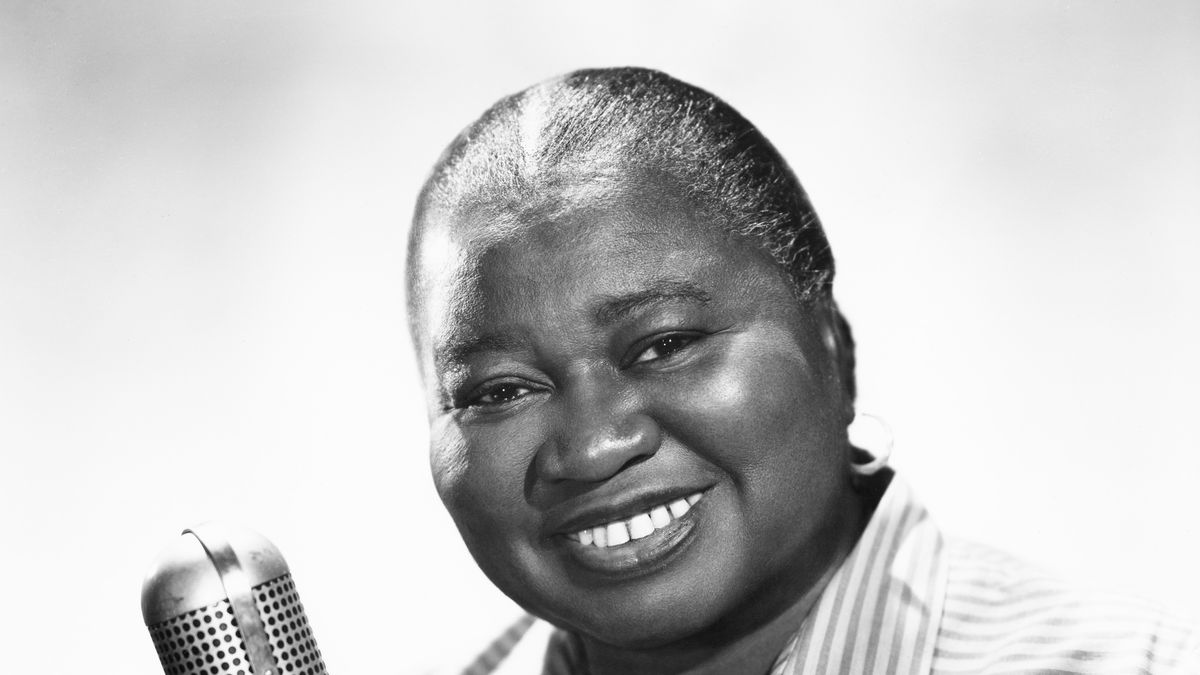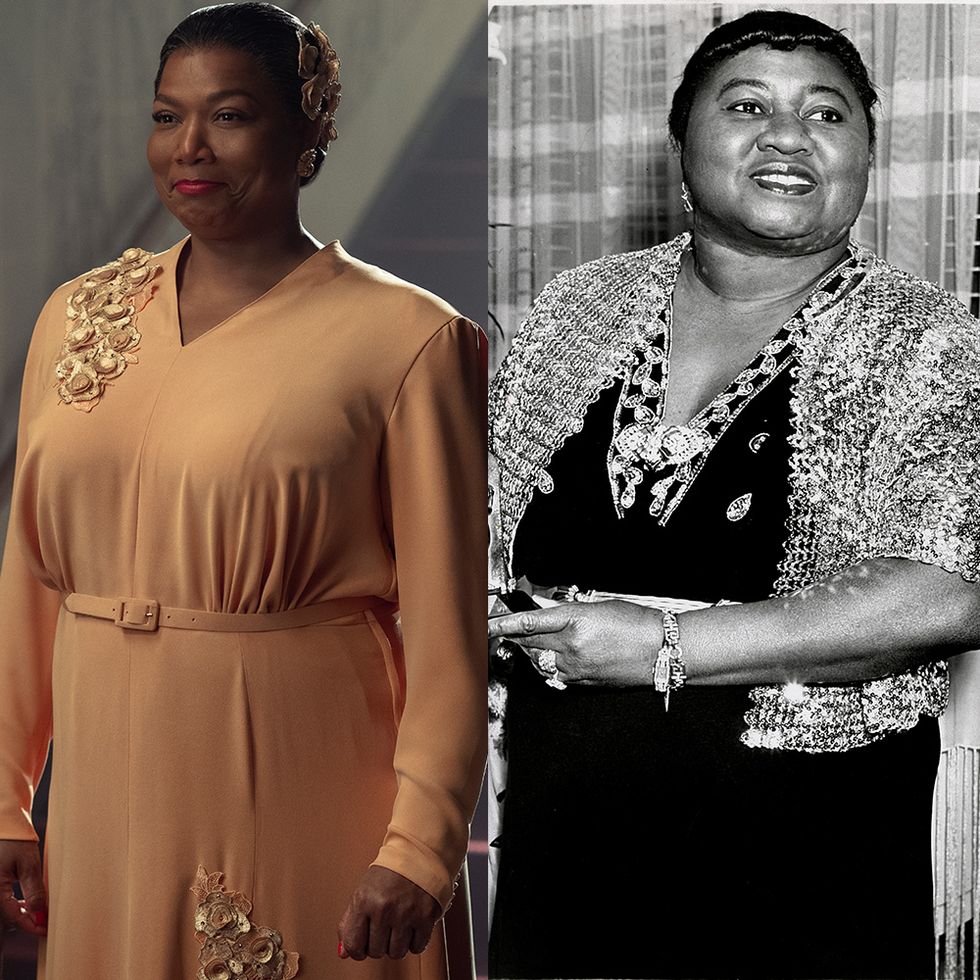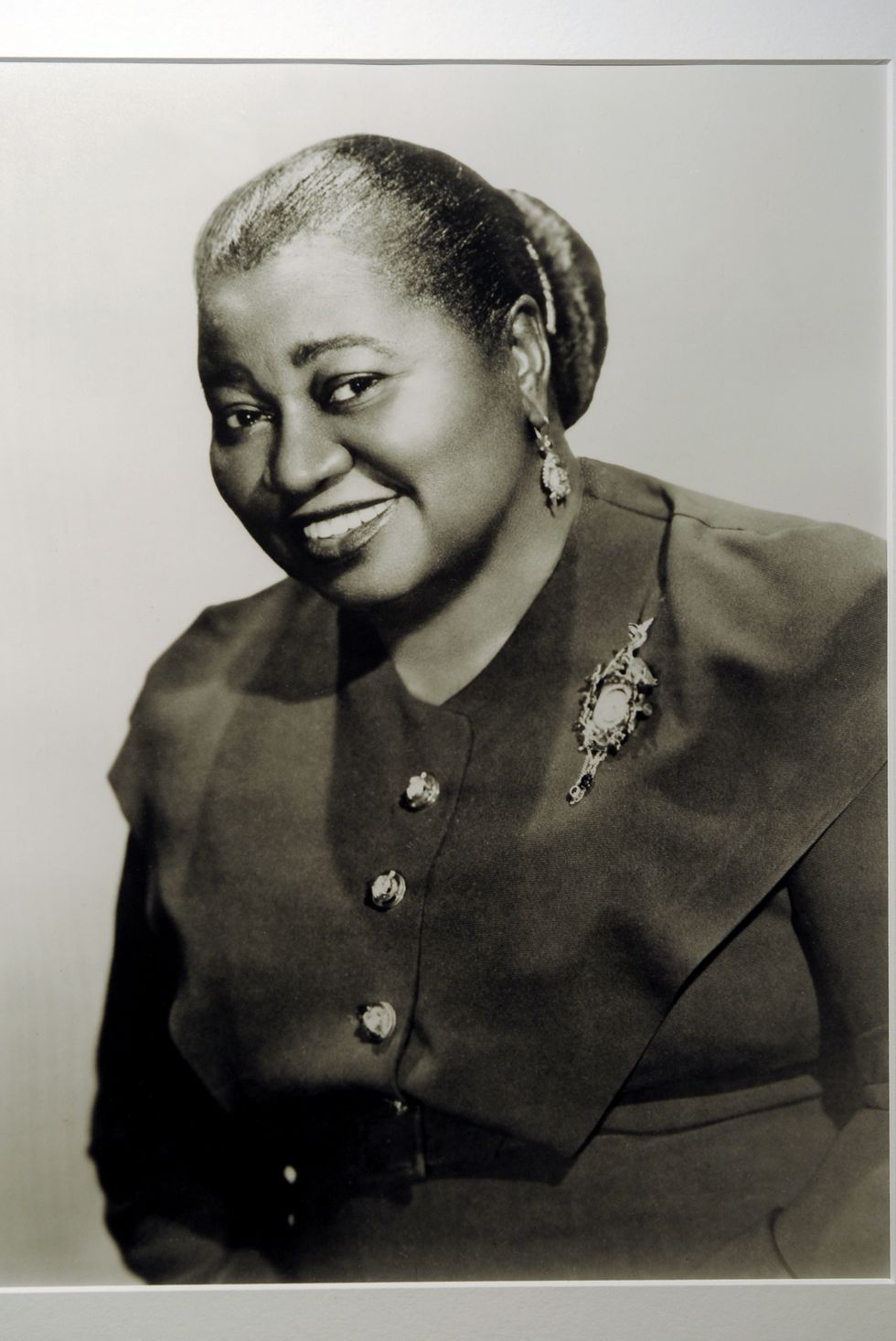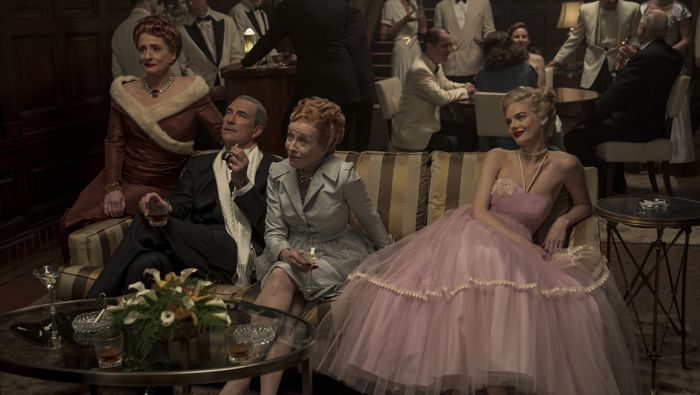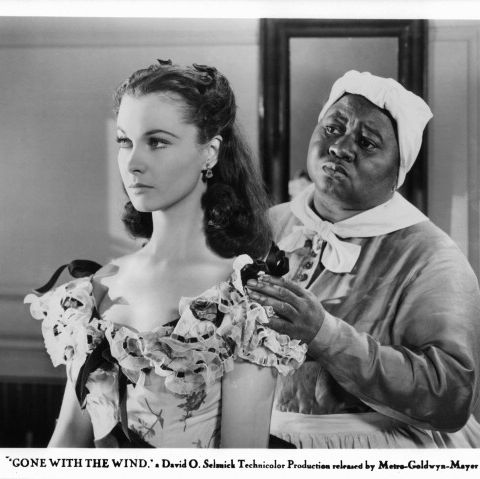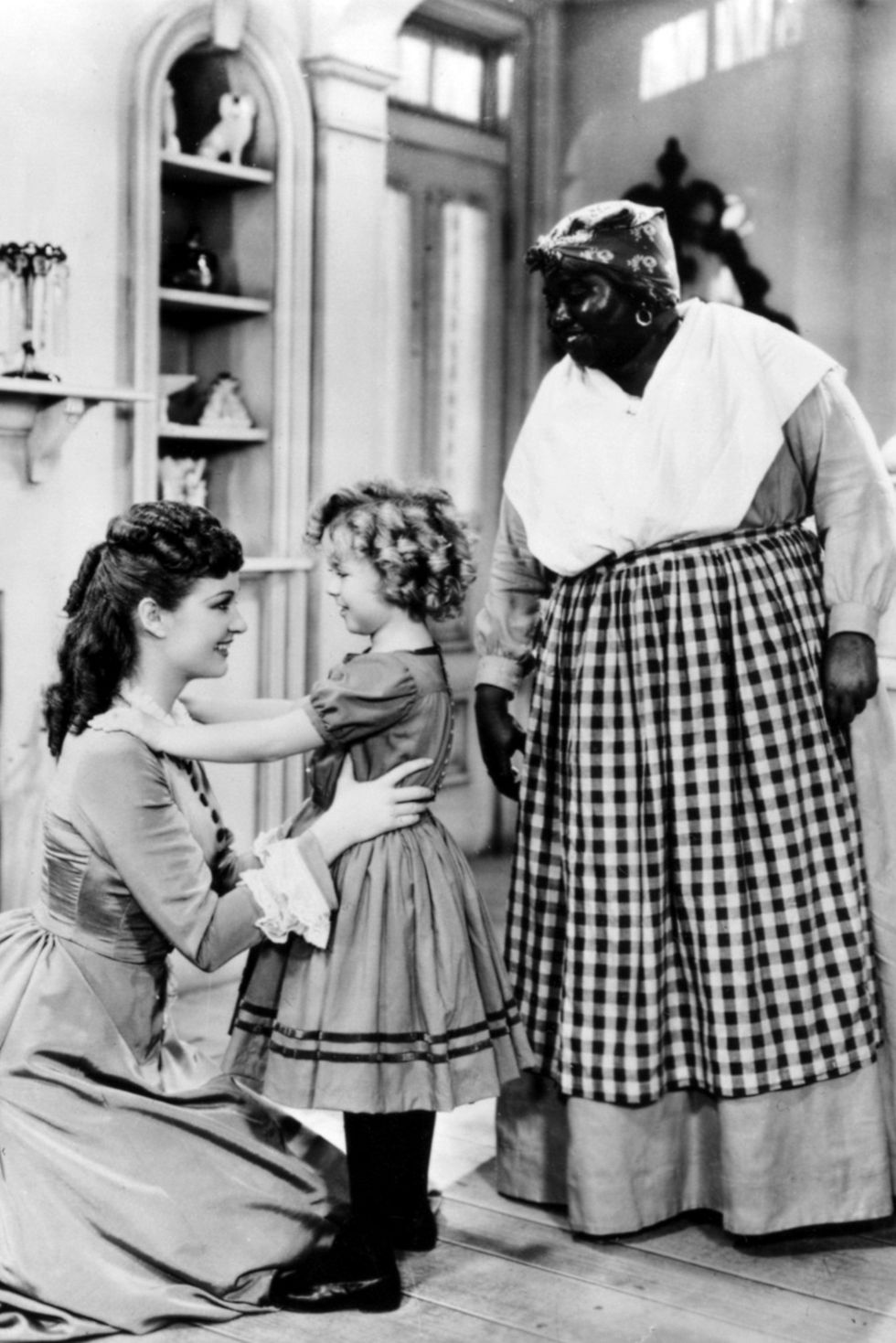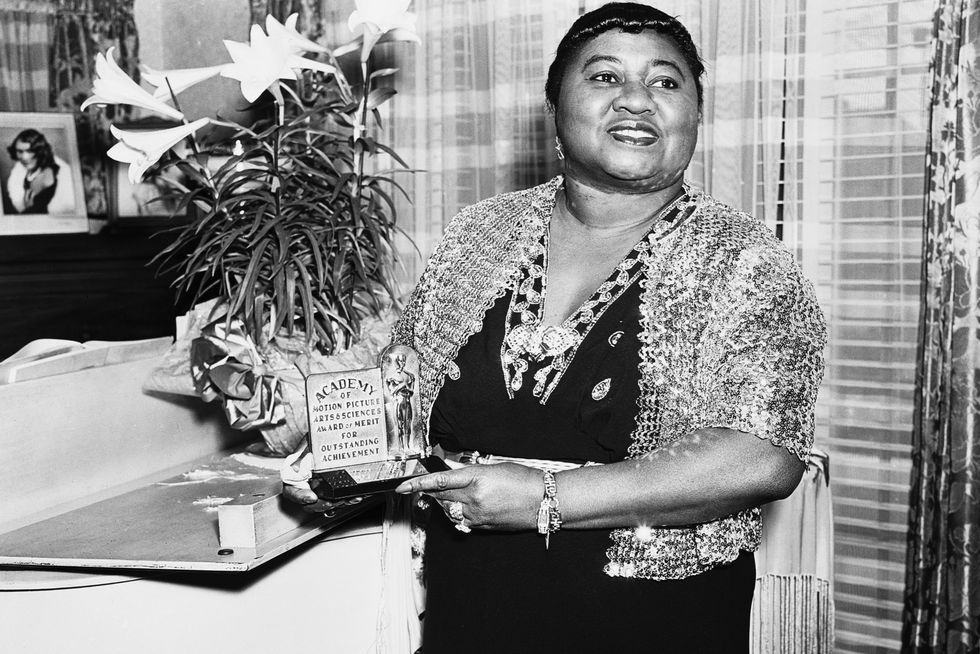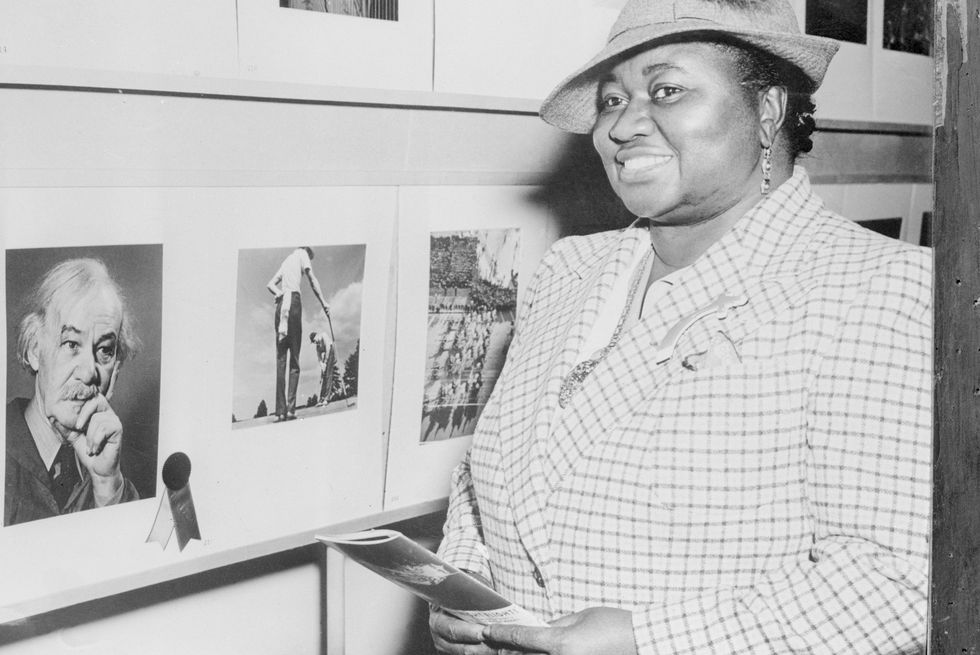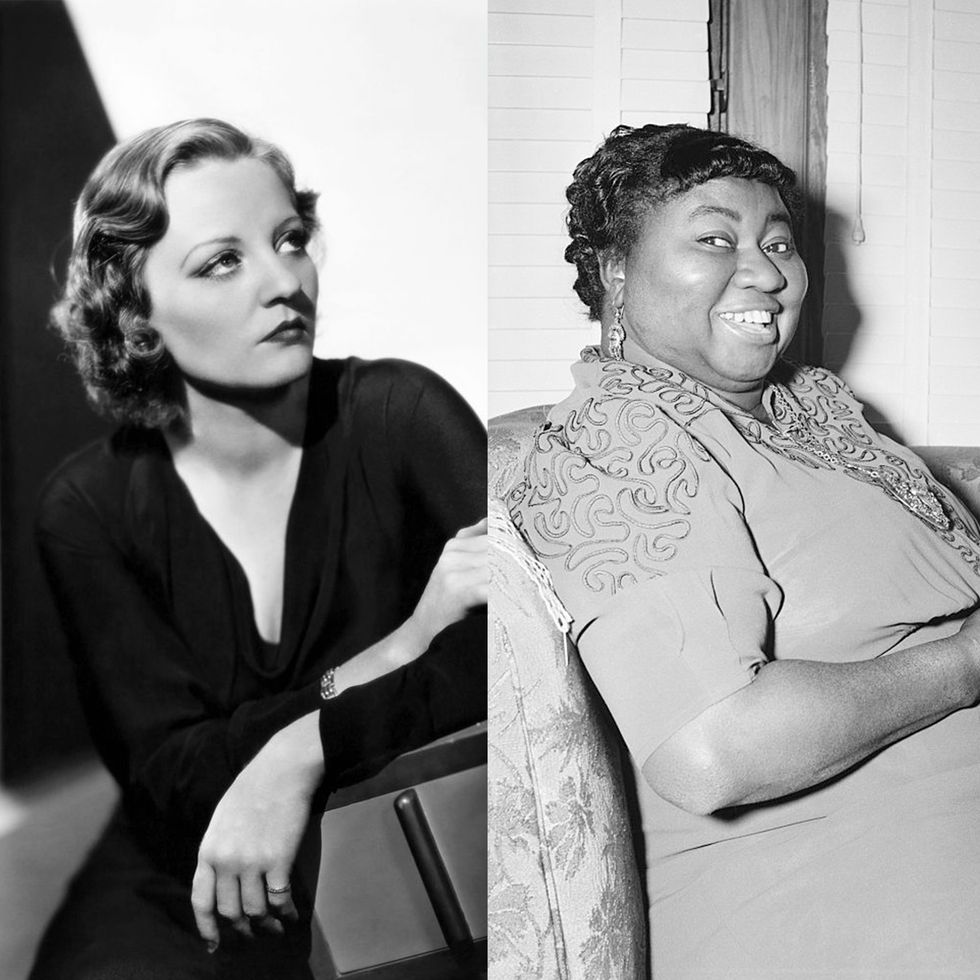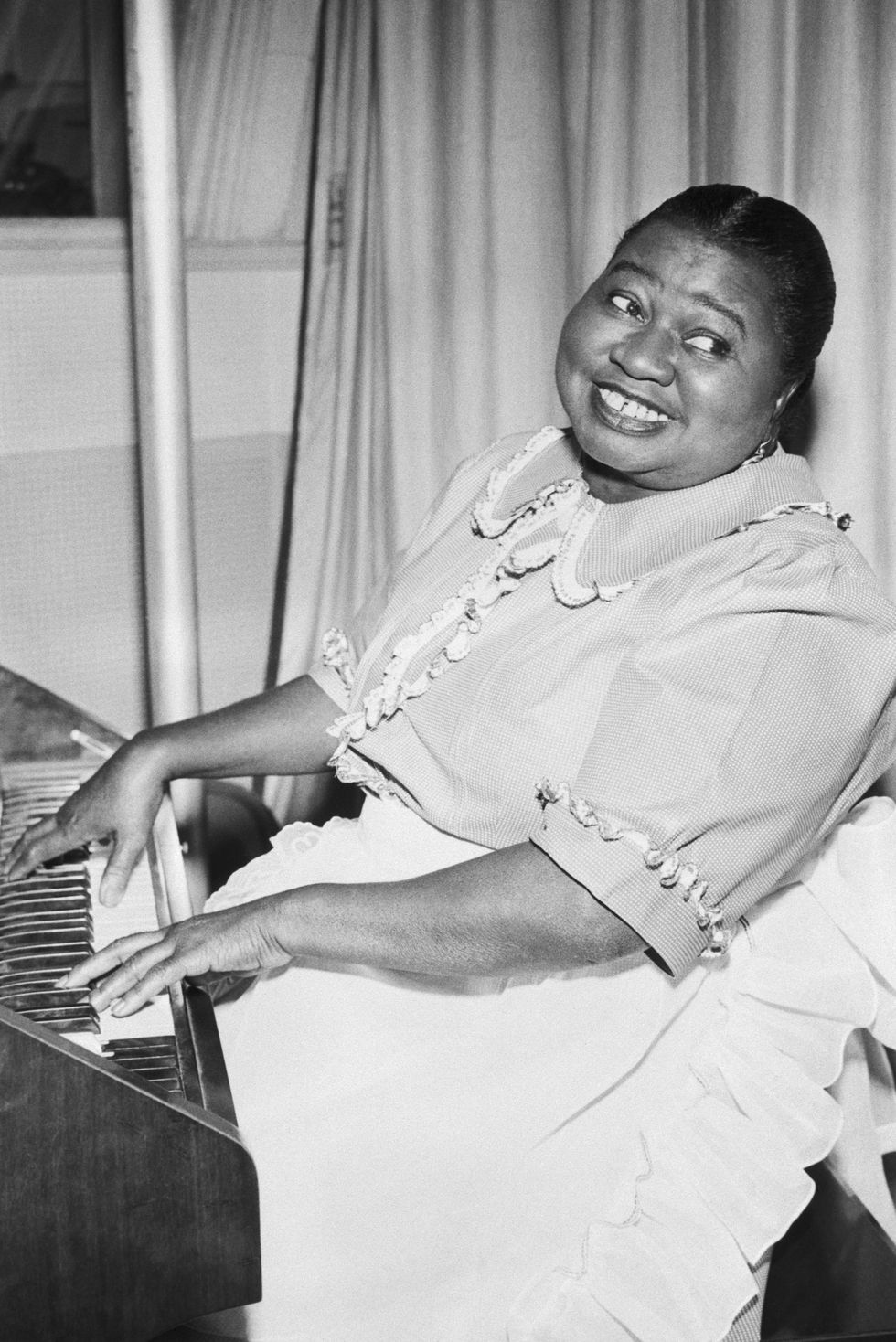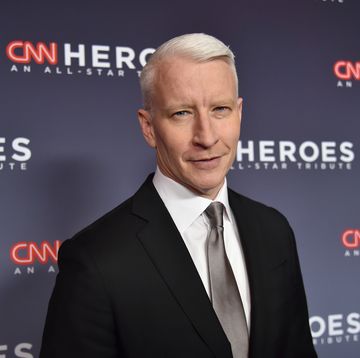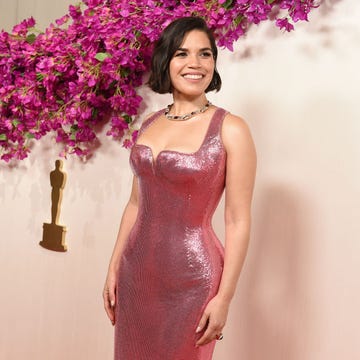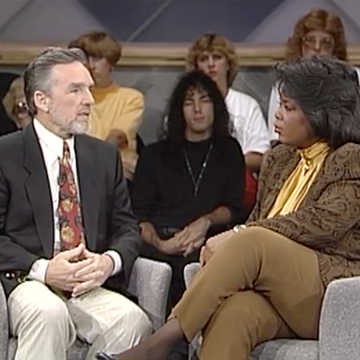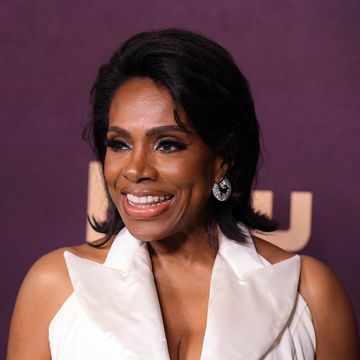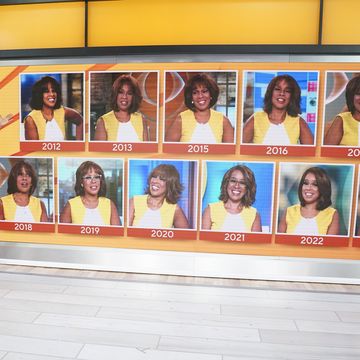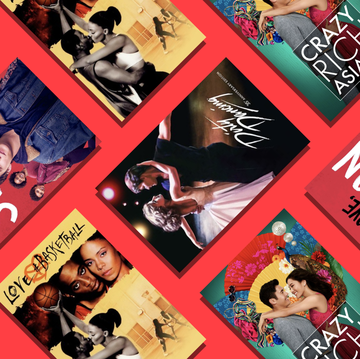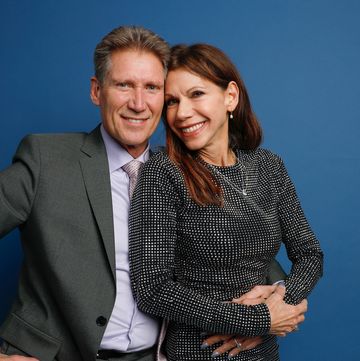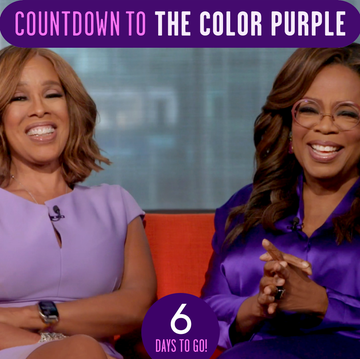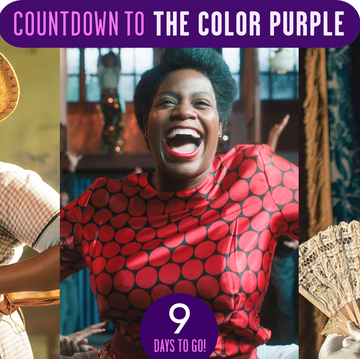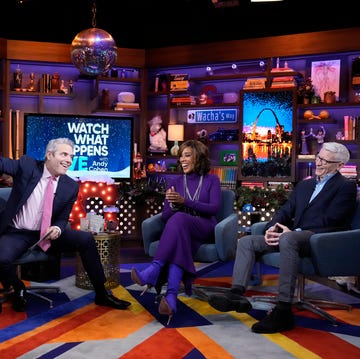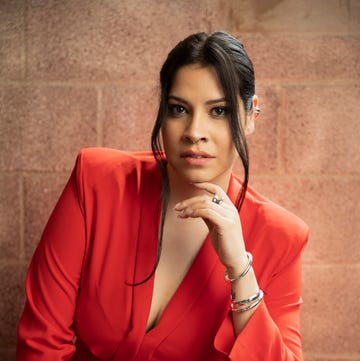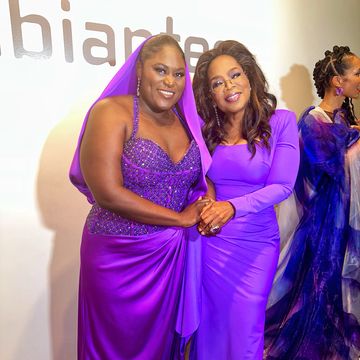- Ryan Murphy's Hollywood premiered on Netflix on May 1.
- The show's cast includes Jeremey Pope, David Corenswet, Darren Criss, and Laura Harrier, amongst others.
- Queen Latifah portrays Hattie McDaniel, the first Black American to win an Academy Award.
Thanks to Ryan Murphy's Hollywood, we now know a little bit more about the riveting true stories of a handful of Hollywood legends. There's Rock Hudson, Anna May Wong, and one Hattie McDaniel.
Portrayed by Queen Latifah, McDaniel was famous for being the first African American to ever win an Oscar for her role in 1939's Gone with the Wind. She left an undeniable legacy in the industry. In Hollywood, her story gets a bit of Murphy's revisionist treatment by being welcomed to the historical ceremony that she was actually shut out of in 1940.
"It was very emotional to have these people get justice and to be seen and to have acceptance, which everybody should have and want," Murphy told The Hollywood Reporter. "It was an emotional thing to give them the happy ending that they had been denied."
Below we detail McDaniel's extraordinary story, and all the triumphs and struggles of her career.
Hattie McDaniel knew she wanted to be an actress at 6 years old.
The 13th child of two former slaves, McDaniel was born in Wichita, Kansas in 1895, but raised in Denver, where she discovered her love of the stage and decided she wanted to be an actress at age six. According to the Colorado Virtual Library she said, “I knew that I could sing and dance...my mother would give me a nickel sometimes to stop.”
She dropped out of high school at age 15 to pursue her career, touring small towns in the U.S. with her brother's carnival company and eventually created a women's minstrel show with her sister called the McDaniel Sisters Company. The Colorado Virtual Library reports that it was during this minstrel show that McDaniel developed her comedic Mammy character "who defied and critiqued racial and gender stereotypes of the era."
The actress also dabbled in radio, but it was her job as the lead singer in George Morrison’s Melody Hounds—a touring jazz orchestra—that spurred her popularity, leading her to Hollywood in 1931 and her first film role in 1932.
She was the first Black actor to win an Oscar.
McDaniel's first studio contract was for Judge Priest (1934), in which she sang a duet with vaudeville actor Will Rogers. A year later she shared the screen with beloved child star Shirley Temple in The Little Colonel, and according to The Hollywood Reporter she formed a close friendship with Clark Gable while filming China Seas (1935). In each of these films she played a maid, contributing to a total of 74 servant roles throughout her career.
But as we know, her most famous of all was that of Scarlet O'Hara's (Vivien Leigh) head servant Mammy in the 1939 epic, Gone With the Wind. THR reports that Bing Crosby—a friend McDaniel's brother, who was also an actor—suggested her for the role that would win her an Oscar for best supporting actress. You can catch her historic acceptance speech at the 12th annual ceremony below.
The show took place at Cocoanut Grove nightclub in The Ambassador Hotel, which didn't allow Black patrons at the time. Gone With the Wind producer David O. Selznick put in a special request to allow McDaniel in the building, but she had to sit at a far table against the wall separate from her co-stars Gable, Leigh, and Olivia de Havilland.
"My own people were especially happy," she said of earning the award. "They felt that in honoring me, Hollywood had honored the entire race. That was the way I wanted it. This was too big a moment for my personal back-slapping. I wanted this occasion to prove an inspiration to Negro youth for many years to come."
McDaniel faced criticism from fellow African Americans.
But despite her place in history, McDaniel was rejected by the NAACP because they felt her film roles perpetuated racist stereotypes of Black people. Particularly after her participation in Gone With the Wind, as they opposed the novel's use of the N-word (though McDaniel refused to say it in the movie).
Smithsonian Magazines reports that in a 1947 Hollywood Reporter article she defended herself, writing, "I have never apologized for the roles I play. Several times I have persuaded the directors to omit dialect from modern pictures. They readily agreed to the suggestion. I have been told that I have kept alive the stereotype of the Negro servant in the minds of theatre-goers. I believe my critics think the public more naïve than it actually is."
The star would go on to appear in over 300 films, according the Colorado Virtual Library, but her career prospects weakened following her Oscar win due to Black activist groups like the NAACP advocating for the end of the typecast roles she dominated. McDaniel's most notable part in the latter years of her career was in Walt Disney's controversial Song of the South (1946). However, a year later she did become the first Black woman to star in their own radio show for the successful comedy series Beulah.
She supported those in her community.
The actress did her best to use her success to uplift peers in her community. McDaniel's biographer Jill Watts told NPR in 2005 that she had an open door policy with fellow African American creatives at her L.A. home on South Harvard Street.
"Within the walls of her home, they're able to perform the way they want to perform," Watts said. "This is post-Academy Award for the first few years. I think she was quite hopeful, and she wanted to share that success with others. She supported family, friends. People talk about how people would just come to her and she'd give out the money she had, so she's quite generous in that way."
She also put together entertainment for Black World War II troops, donated to the NAACP (despite their disownment), and was chairman of the Negro Division of the Hollywood Victory Committee from 1941 to 1945, according to the Colorado Virtual Library.
So, did she have a relationship with Tallulah Bankhead?
Hollywood heavily hints at the fact that the two were an item, but there are only decades-long rumors to support this storyline, as a relationship between the two was never confirmed. However, McDaniel herself was married four times, losing her first husband to pneumonia with the other three marriages ending in divorce. She never had children.
Before she died, McDaniel left distinct instructions for her funeral.
McDaniel died at the age of 57 in 1952 of breast cancer, but not before throwing a "deathbed party" that was said to have people "milling around, drinking, laughing" according to The Hollywood Reporter. She even left precise instructions for her funeral. "I desire a white casket and a white shroud; white gardenias in my hair and in my hands, together with a white gardenia blanket and a pillow of red roses," she wrote.
Another wish was that she be buried at the Hollywood Forever Cemetery, but at the time it was for whites-only. She was laid to rest at the Angelus-Rosedale Cemetery instead, but a marble memorial was later built for her at her original choice of resting place in 1999.
For more ways to live your best life plus all things Oprah, sign up for our newsletter!

McKenzie Jean-Philippe is the editorial assistant at OprahMag.com covering pop culture, TV, movies, celebrity, and lifestyle. She loves a great Oprah viral moment and all things Netflix—but come summertime, Big Brother has her heart. On a day off you'll find her curled up with a new juicy romance novel.
